Climate change

Salvation cannot remain an individualized spiritualized concept. When the psalmists called out for salvation, they meant salvation from present suffering and danger. When the crowd shouted “Hosanna” at Jesus’ arrival in Jerusalem, they weren’t referring to the afterlife. When we talk about salvation in the context of our warming climate, we mean deliverance from the most destructive force our species has ever faced. When it comes to climate change, we have to think about community and salvation in a global sense. We must start to recognize that our communities are mutually dependent upon each other.

The resurrected Jesus is recognized not by his words but by his wounds, the wounds of his crucifixion. Herein lies a great irony. The crucifixion has left its indelible marks upon the resurrected one, such that the risen Jesus is recognizable only through them. On the one hand, resurrection has not erased his wounds. On the other hand, Jesus’ wounds no longer define him as a dead criminal, as determined by the state. Jesus doesn’t wince at Thomas’s touch. Even as his wounds remain, Jesus’ body is made whole and new.
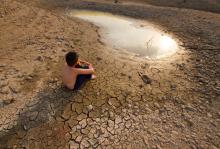
As presidential orders and administrative policies continue to scale back environmental protections, it’s important for Christians to realize that this is a vitally important spiritual issue. Many Christians ignore environmental issues because they don’t view it as an important faith-related concern — but what if environmentalism was essential to evangelism? In many ways, taking care of our environment is a direct form of evangelism, but many Christians have yet to realize — and even reject — this truth.

The power of the order is found less in its immediate consequences, and more in its trajectory-setting results. While the world is slowly backing away from a crumbling cliff, this executive order represents a shift into drive to send the global climate hurtling toward the ledge.

U.S. President Donald Trump will announce the approval of the Keystone XL oil pipeline at the White House on Friday, alongside the chief executive officer of builder TransCanada Corp, according to a senior administration official.

The State Department is set to approve the Keystone XL pipeline by Monday, Politico reports. The cross-border permit that will allow construction to proceed is set to be signed by Undersecretary for political affairs Tom Shannon just before the end of the 60-day timeline President Donald Trump called for in January.
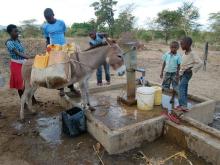
The drought in the Sahel — a region that forms a dry belt across northern Africa — has left millions without any water to drink, and is being linked to three deaths in recent days in Kenya, due to consumption of unsafe water.
“There are no drops to reduce, recycle, or reuse,” said professor Jesse Mugambi, of the University of Nairobi, who added that many in the region are spending World Water Day “praying for drops of rain to quench their thirst and that of their livestock.”

The years ahead of us will be the most challenging our species has ever faced. For many of the other species that share this planet with us — and for some of our own people — it will be too much to survive. Dressing for a funeral doesn’t begin to prepare our hearts for this kind of devastation.
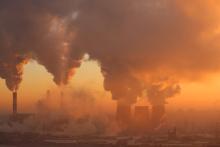
After sessions on gravitational waves, nuclear forensics, and artificial intelligence, one of the world’s largest general science conferences invited attendees to hear from an Episcopal priest.
The Rev. Fletcher Harper preached on climate change, and how to get a vast segment of the world’s population to pay better attention to what scientists know but many others doubt: that the problem is worsening and portends disaster.
“My entreaty for scientists is to be able to speak publicly about why you care,” said Harper, executive director of GreenFaith, an interfaith nonprofit that aims to galvanize religious people to safeguard the environment.
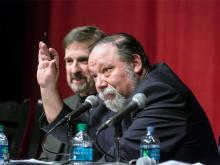
For Catholics, the key to working collaboratively with Pope Francis, on issues from mass migration to climate change to Hispanic evangelization, may be found in a controversial movement that many left for dead long ago: liberation theology.
That message reverberated, from Feb. 6 to Feb. 10, through the halls of Boston College and a nearby retreat center, as nearly 40 theologians gathered from across the Spanish-speaking world to discuss the movement’s future with its founding figures.

If confirmed, Pruitt should walk into the halls of the Environmental Protection Agency with the same conviction of faith with which he walks into First Baptist Church of the Broken Arrow. He should promote policies to guard clean water and clean air, to protect children from pollution, and to safeguard all of us from the impacts of a changing climate.
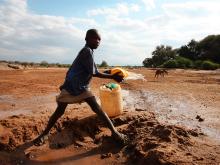
At the Thatha Roman Catholic Mission, part of the Machakos Diocese, the Rev. Gerard Matolo increasingly sees more people seeking help.
“You can’t tell them that there is nothing,” Matolo said. “As their shepherd, I have to find a way to ensure they get something to eat. Sometimes I share my own food.”
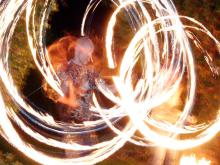
Religion is increasingly viewed as highly politicized, not least due to the way that it is frequently covered in the news. Numerous studies have shown that news stories with emotional cues tend to both gain audience attention and prolong audience engagement.
It may therefore come as no surprise that online debates about religion are packed with emotional cues that evoke strong reactions from those who participate in them. This sets the stage for passionate online debates.
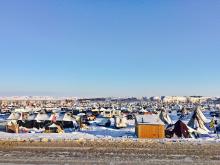
I join with those who celebrate the birth of this spirit-child, even while knowing his life led to murder at the hands of a corrupt Roman regime that for years had been using power and wealth to silence and oppress people. It is said that after his murder, this same person rose from the dead, his body and bloodshed becoming a bridge from violence and trauma to wholeness and healing — showing that hope could conquer hate, and that the power of integrity, justice, and love could win over corruption, fear, and violence.

Sometime over the weekend, I noticed a few friends unexpectedly “check-in” to Standing Rock Sioux Reservation, N.D., on Facebook. Given the recent rise in tensions between police and the water protectors protesting the Dakota Access Pipeline, it made sense to me that some of my pastor-friends would go be a part of the protests.
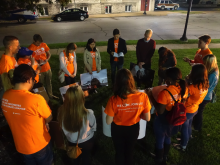
Grist’s Emma Merchant recently crunched the numbers on how frequently climate change has been discussed in the debates of the past five presidential election cycles (2000, 2004, 2008, 2012, and 2016).
She found that, out of 1,500 minutes of presidential and vice-presidential debate, climate change got a paltry 37 minutes of discussion. In 2012, of course, climate change got a whopping zero minutes of debate time.
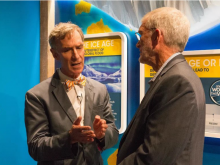
Bill Nye, known from his 1990s TV show as “The Science Guy,” toured the new Ark Encounter theme park in Kentucky with the head of the Christian apologetics ministry behind it.
And it was “like the debate all over again but more intense at times,” according to a blog post by Ken Ham, president and CEO of Answers in Genesis. Ham also posted on social media about Nye’s visit, which occurred on July 8.

I arise in the morning torn between a desire to improve the world and a desire to enjoy the world. This makes it hard to plan the day. — E.B. White
ON A GORGEOUS FALL DAY, I bundle up just a bit and go sit on the rock under the apple tree in the middle of the field. The low-angled sun pours its subdued warmth onto the splashy orange of the maples, transient yellows of the tamarack, and faithfully green cedar. Further to the west, the mountains cut a postcard-perfect silhouette against the seasonally pale blue sky.
Such grace, warming my heart with joy.
A loving God calls us to experience such profligate joy. Now, in the latter decades of my life, time picks up its pace at an alarming rate. So I often promise myself to seek more opportunities to sit on rocks.
But instead, each morning, the genes of my activist mother, the teachings of my faith, and probably a bit too much of my own hubris conspire to bring on the conflicting desire to “improve” (well, okay ... save) the world.
So I strongly identify with E.B. White’s dilemma, softened by his gentle humor-with-a-touch-of-wistfulness.
Working for social justice seems like forever. I am weary of being tedious to those around me who do not understand my seemingly quixotic campaigns. I am weary listening to the current loud, vicious, largely irrelevant public clamor surrounding issues to which I am dedicated. I am weary knowing that those of us preaching minority positions that were once slammed as unrealistic have been proven right. But it took so long: civil rights, the Vietnam War, apartheid, climate change. As we slogged through our protests and The Powers That Be didn’t listen, lives were lost, billions of dollars spent, time wasted. I am impatient: Why can’t the arc of the moral universe run, rather than just bend, toward justice?
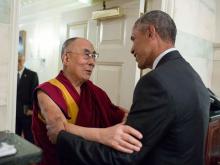
President Obama met behind closed doors with the Dalai Lama on June 15 in a White House meeting carefully designed to acknowledge the Tibetan leader’s importance as a global spiritual figure while not according him a head-of-state status that might further provoke China.
The White House said the Dalai Lama expressed his condolences for the shooting attack in Orlando on June 12, and the two men talked about climate change — an issue of particular importance in the Dalai Lama’s Himalayan home.
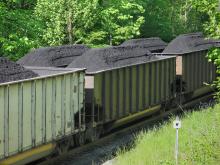
WEST VIRGINIA’S coal-addicted economy is busted. Dozens of bankrupt coal companies are busted. A coal company CEO is busted for flagrant safety violations that contributed to an explosion killing 29 miners.
Boom-and-bust cycles have a jagged history in the central Appalachian coal basin of southern West Virginia, eastern Kentucky, and southwest Virginia. America’s industrial revolution prospered on Appalachia’s steam and coking coal. Hard-gained union struggles brought miners and their communities an improved living standard. Yet as time marched on, machinery replaced miners, the coal industry busted unions, Appalachian coal seams played out, and cheaper Western coal and fracked shale gas outcompeted.
Coal-dependent economies are now tanking. Miner layoffs have skyrocketed. Policymakers have long ignored forecasts of coal’s impending decline. The West Virginia legislature, facing a major state revenue shortfall, is considering drastic budgetary cuts—such as closing state parks, college branch campuses, and state police detachments—while, incredibly, introducing bills to attempt to bring back the coal industry by reducing its severance and worker-compensation taxes.
Coal will not bounce back. From coal’s perspective, the national debate on coal and climate change has largely been lost.
The Clean Power Plan announced by the EPA in June 2014 seeks to reduce climate-warming CO2 emissions 30 percent by 2030. Projected air quality improvement will also deliver significant financial and life-protecting health benefits. However, since West Virginia politicians dance to the strings of their coal-industry puppet masters, State Attorney General Patrick Morrisey is leading a coalition of 25 states asking a federal court to strike down the Clean Power Plan, calling it a “war on coal.”